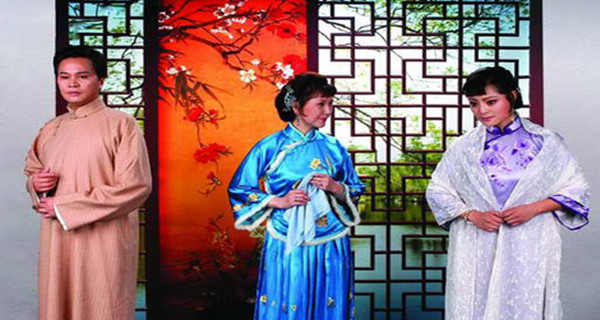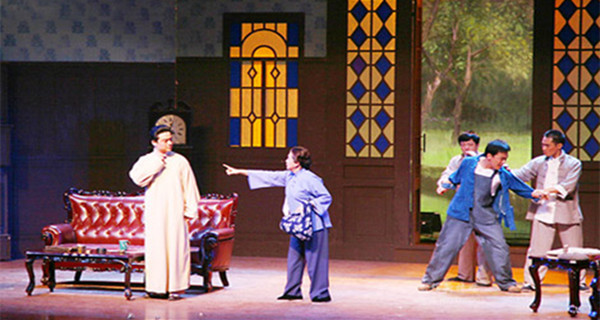Huju (沪剧), or "Shanghai opera" is a variety of Chinese opera from the area of Shanghai. It is typically sung in the Shanghainese dialect. Shanghai Opera (Huju) originated at about the same time as Beijing Opera, around 200 years ago. However, the Shanghai version of opera is based on local folk-songs of the Huangpu River region, rather than deriving from Anhui and Shanxi.

It is particularly popular in Baihe, the oldest town in the Qingpu District of Shanghai. There are eight to ten huju troupes in the town, and many local residents hire the troupes to perform for weddings and funerals. Huju is accompanied by an ensemble of traditional Chinese instruments, including dizi (transverse bamboo flute), erhu (two-stringed fiddle), pipa (pear-shaped lute), yangqin (hammered dulcimer), and percussion. The instrumentation and style are closely related to the instrumental genre of Jiangnan sizhu.
The famous Chinese composition "Purple Bamboo Melody" (紫竹调) is adapted from Huju.

Due to the relatively recent nature of the stories and songs that make up Huju, the costumes and makeup are comparatively simple and modern. Shanghai opera performers wear costumes that resemble the street clothing of ordinary people from the pre-communist era. Their makeup is not much more elaborate than that worn by western stage actors, in stark contrast to the heavy and significant grease-paint used in the other Chinese Opera forms.
Huju had its heyday in the 1920s and 1930s. Many of the stories and songs of the Shanghai region show a definite western influence. This is not surprising, given that the major European powers maintained trading concessions and consular offices in the thriving port city, prior to World War II.
Like many of the other regional opera styles, Huju is in danger of disappearing forever. Few young actors take up the art form, since there is much greater fame and fortune to be had in movies, TV, or even Beijing Opera. Unlike Beijing Opera, which is now considered a national art form, Shanghai Opera is performed in a local dialect, and thus does not translate well to other provinces.
Nevertheless, the city of Shanghai has millions of residents, with tens of millions more in the near vicinity. If a concerted effort is made to introduce younger audiences to this interesting art form, Huju may survive to delight theater-goers for centuries to come.
Source: arts.cultural-china.com



